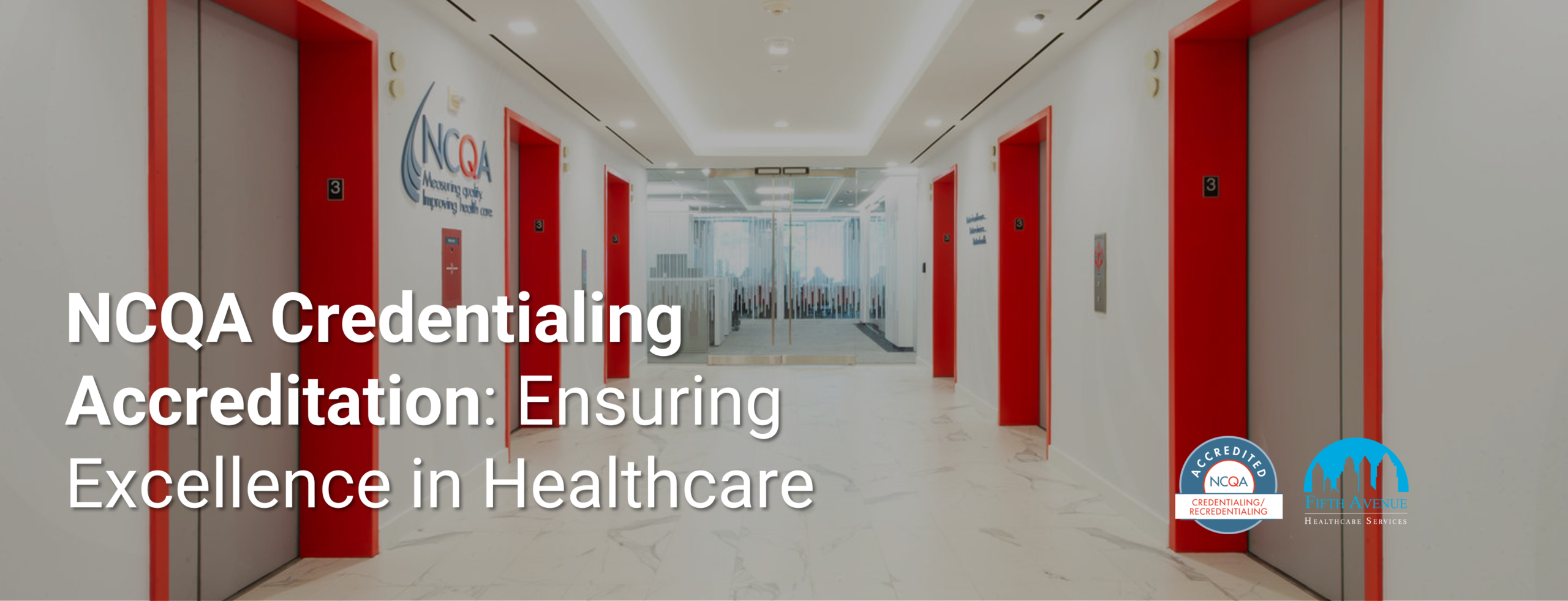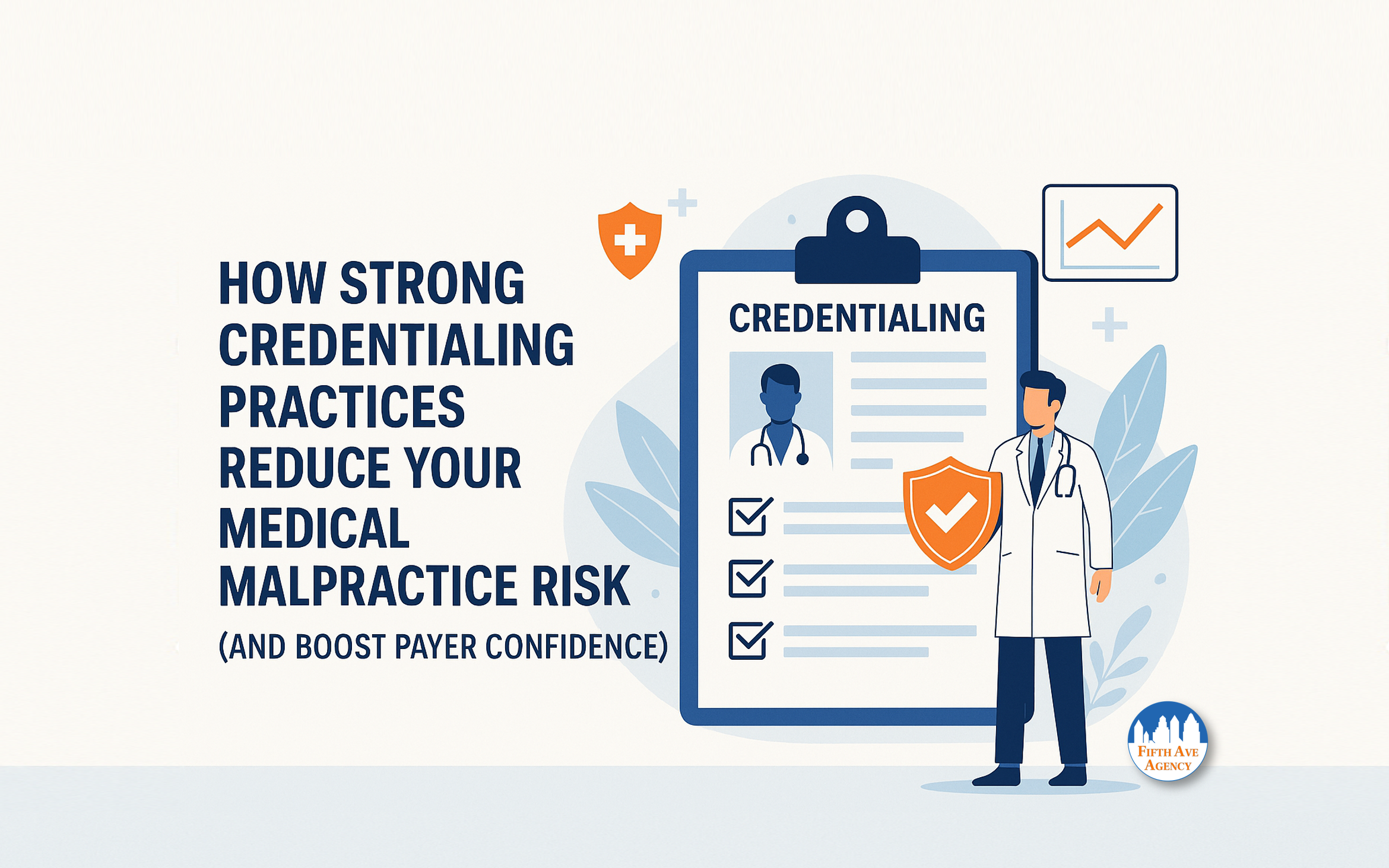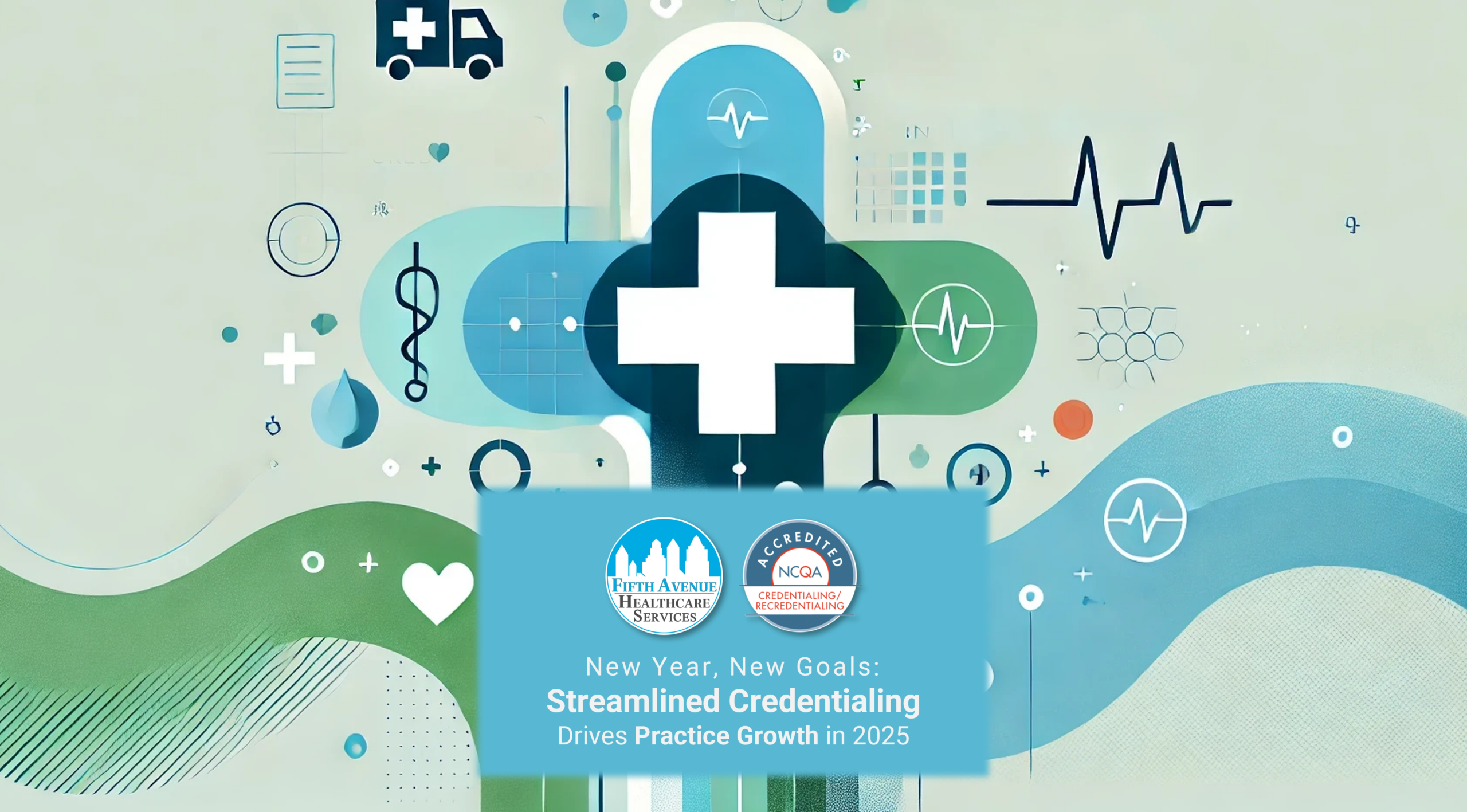The imperatives of quality assurance and patient safety reign supreme in the contemporary healthcare sector, an industry marked by rapid evolution and complexity. Standing at the forefront of this critical mission is the National Committee for Quality Assurance (NCQA), an organization synonymous with setting the gold standard in healthcare quality.
NCQA’s credentialing accreditation is not merely a certification but a deep-rooted commitment to healthcare excellence. This comprehensive analysis aims to unravel the multifaceted impact of NCQA Credentialing Accreditation within the microcosm of individual healthcare entities such as Fifth Avenue Healthcare Services’ 5ACVO and across the broader healthcare landscape.
Understanding NCQA and Its Credentialing Accreditation
The NCQA has been a beacon of quality in the healthcare system, advocating for higher standards and improved patient care. This section explores the foundation and progression of NCQA and the pivotal role of its Credentialing Accreditation in healthcare.
- The Genesis and Evolution of NCQA: Formed with the vision of elevating healthcare quality, the NCQA has evolved over the years, adapting to the changing needs of the healthcare sector. Its inception was driven by the growing necessity for standardized quality benchmarks in healthcare services, responding to a time when discrepancies in care quality were stark and prevalent. Over the years, NCQA has expanded its scope, incorporating contemporary healthcare challenges and technological advancements into its accreditation criteria, thus ensuring its standards remain relevant and rigorous.
- The Significance of Credentialing Accreditation: Credentialing Accreditation by NCQA stands as a testament to an organization’s adherence to the highest quality standards. This accreditation is not merely about compliance with established norms; it is a comprehensive evaluation that scrutinizes various aspects of healthcare credentialing delivery – from document collection to staff qualifications and continuous quality improvement mechanisms. In essence, it provides a robust framework for healthcare organizations to ensure their providers are qualified to consistently deliver high-quality care.
- NCQA Credentialing Accreditation Process: The process to achieve NCQA Credentialing Accreditation is stringent and comprehensive, designed to ensure that only those organizations that truly commit to quality assurance attain this prestigious recognition. The journey toward accreditation involves a meticulous assessment of an organization’s policies, procedures, and practices against NCQA’s rigorous standards. It encompasses a thorough evaluation of credentialing processes, quality improvement initiatives, and patient safety measures, ensuring accredited organizations operate at the pinnacle of healthcare excellence.
NCQA Credentialing Accreditation: A Closer Look
Delving deeper into NCQA Credentialing Accreditation, this section highlights its criteria, impact, and commitment to continual improvement.
NCQA Accreditation Criteria and Standards
NCQA’s credentialing accreditation criteria are extensive and detailed, covering various operational and clinical aspects. These criteria include the evaluation of credential verification processes, ongoing monitoring of healthcare providers, and implementation of quality improvement programs. The standards are designed to be comprehensive, ensuring that every facet of the organization contributes to the overarching goal of superior patient care.
NCQA Credentialing Accreditation Impact on Healthcare Organizations
The impact of achieving NCQA Credentialing Accreditation is profound and multifaceted. Organizations that attain this accreditation often witness enhanced operational efficiency, improved patient outcomes, and heightened staff morale.
More importantly, it instills a culture of continuous quality improvement, driving organizations to perpetually seek ways to enhance their care delivery. The accreditation also serves as a powerful tool for building trust with patients and stakeholders, demonstrating an unwavering commitment to quality and safety.
NCQA: Continuous Improvement and Adaptation
NCQA continually revises and updates its standards to reflect the evolving healthcare landscape. This ongoing process ensures that the accreditation remains relevant and challenging, pushing organizations to adapt to new healthcare trends and technologies. By doing so, NCQA ensures that its accredited organizations meet current standards and are prepared for future healthcare challenges.
Fifth Avenue Healthcare Services: Embracing Excellence through NCQA Credentialing Accreditation
Focusing on Fifth Avenue Healthcare Services’ 5ACVO, this segment explores how NCQA Credentialing Accreditation has been instrumental in pursuing excellence.
Corporate Overview of Fifth Avenue Healthcare Services
Fifth Avenue Healthcare Services is a paragon of quality in the healthcare sector. With a diverse portfolio of services and a commitment to excellence, the organization has established itself as a leader in providing top-tier healthcare credentialing and provider enrollment services and MPLI solutions.
A relentless pursuit of quality and operational efficiency underscores the journey toward excellence.
Journey to NCQA Credentialing Accreditation
The path to NCQA Credentialing Accreditation for Fifth Avenue Healthcare Services was marked by a strategic focus on enhancing their quality assurance frameworks and credentialing processes and instilling a culture of continuous improvement. This journey was not just about meeting the standards set by NCQA but about internalizing these standards as part of the organizational ethos.
NCQA Credentialing Accreditation: Impact and Outcomes
The attainment of NCQA Credentialing Accreditation has been a transformative experience for Fifth Avenue Healthcare Services. It has not only bolstered a reputation as a provider of high-quality healthcare services but has also streamlined its operational processes, making it more efficient and effective.
The accreditation has catalyzed continuous improvement, driving the organization to innovate and elevate its standards of care constantly.
Broader Implications of NCQA Credentialing Accreditation
This section examines the extensive influence of NCQA Credentialing Accreditation on individual organizations.
-
- Influencing Healthcare Quality on a Macro Level: NCQA’s credentialing accreditation standards serve as a beacon for the entire healthcare industry, promoting a unified approach to quality and safety. By setting high benchmarks, NCQA encourages all healthcare entities to aspire for excellence, thereby elevating the overall standard of healthcare.
- Setting Industry Benchmarks: The standards set by NCQA have become the de facto benchmarks for quality in the healthcare industry. They influence not just the operational aspects of healthcare organizations but also inform policy decisions and shape patient expectations. As a result, NCQA’s role extends beyond accreditation; it is instrumental in shaping the future of healthcare quality.
- Prospects and Developments: The landscape of healthcare is continuously evolving, with new challenges and opportunities emerging regularly. NCQA’s commitment to updating and refining its standards ensures its accreditation remains relevant and forward-looking. The future will likely see NCQA expanding its reach and impact, adapting to new healthcare trends and technologies, and continuing to drive improvements in healthcare quality.
NCQA’s Credentialing Accreditation and CVO Certification Proposed Updates: A Comprehensive Overview
The healthcare landscape is perpetually evolving, necessitating adaptive and forward-thinking approaches to accreditation and quality assurance.

NCQA’s proposed updates are a response to this dynamic environment, aiming to refine and enhance the credentialing process in line with contemporary healthcare developments and challenges.
NCQA Proposed Updates: Background and Rationale for Updates
The impetus behind NCQA’s proposed updates stems from an in-depth analysis of the current state of healthcare, particularly in credentialing practices. This review process involved engaging with over 100 organizations and experts in the industry, gathering valuable insights into the challenges, innovations, and barriers within the field of healthcare credentialing.
These consultations revealed significant shifts in industry practices and regulatory landscapes, necessitating updates to ensure that NCQA standards remain at the forefront of healthcare quality assurance.
NCQA Updates: Key Proposed Changes
NCQA’s proposed updates are designed to address the evolving needs of the healthcare landscape, ensuring that accreditation standards remain robust, relevant, and reflective of contemporary practices.
Integration of CR Accreditation and CVO Certification:
-
- Objective: This change aims to unify two critical programs under one umbrella, simplifying the process for healthcare organizations and eliminating overlap between the two sets of criteria.
- Impact: By merging these programs, NCQA intends to streamline the accreditation process, making it more efficient and less cumbersome for organizations. This consolidation is expected to reduce confusion, minimize administrative burdens, and provide a clearer path to accreditation.
- Benefits: The integrated program is anticipated to offer a more cohesive set of standards, improving clarity and consistency in the accreditation process. This move is particularly advantageous for organizations that might have previously considered undergoing both accreditation processes separately, saving time and resources.
Modular Structure and Revised Eligibility:
-
- Objective: Implementing a modular structure designed to offer tailored accreditation paths, catering to various healthcare organizations’ diverse needs and specialties.
- Impact: The modular approach allows organizations to focus on specific areas relevant to their operations, making the accreditation process more relevant and manageable.
- Benefits: This flexibility enables organizations to align their accreditation efforts more closely with their strategic goals and areas of focus, thereby enhancing the value and applicability of the accreditation.
Introduction of an Interim Survey Option:
-
- Objective: To assist organizations new to NCQA accreditation, the Interim Survey option offers a phased approach to achieving full accreditation.
- Impact: This intermediate step provides organizations with a guided pathway, progressively allowing them to meet the complete accreditation standards over 18 months.
- Benefits: The interim option is particularly beneficial for smaller or resource-constrained organizations, facilitating their journey towards achieving full accreditation. It serves as an encouragement for more organizations to strive for NCQA accreditation, thus raising the overall standard of care in the healthcare industry.
Updates to Standards:
-
- Objective: Updating existing standards to reflect the latest best practices, technological advancements, and regulatory changes in healthcare.
- Impact: These updates ensure that NCQA standards remain at the cutting edge of healthcare quality and safety.
- Benefits: By continuously updating their standards, NCQA ensures that accredited organizations are not just meeting current benchmarks but are also prepared for emerging challenges and opportunities in healthcare.
Emphasis on Health Equity:
-
- Objective: To promote inclusivity and address healthcare disparities, NCQA is focusing on health equity in its credentialing process.
- Impact: This involves incorporating factors such as practitioners’ race, ethnicity, and language capabilities into the credentialing process.
- Benefits: The focus on health equity is expected to lead to more culturally competent and sensitive healthcare services. This approach aligns with broader objectives in healthcare to provide equitable care to diverse patient populations, thereby improving overall patient outcomes and satisfaction.
NCQA Proposed Updates: Anticipated Impact and Outcomes
The NCQA proposed updates are expected to influence the landscape of healthcare credentialing and accreditation significantly:
-
- Enhanced Accessibility and Relevance: By streamlining the accreditation process and making it more adaptable to the needs of various healthcare organizations, these updates are expected to make NCQA accreditation more accessible and relevant. This could lead to an increase in the number of healthcare providers seeking accreditation, thereby raising the overall standard of healthcare delivery.
- Improved Operational Efficiency: Integrating programs and introducing a modular structure will likely result in improved operational efficiency for organizations undergoing the accreditation process. This streamlined approach reduces administrative burdens and allows organizations to focus more on quality improvement and patient care.
- Advancement in Healthcare Quality and Safety: The focus on updating standards to reflect current best practices and regulatory requirements is anticipated to drive healthcare quality and safety advancements. These updates encourage organizations to adopt modern, evidence-based approaches to healthcare delivery, ultimately benefiting patients through improved care and outcomes.
- Promotion of Health Equity: The emphasis on health equity in the updated standards is a significant step towards ensuring that healthcare services are inclusive and sensitive to the diverse needs of patients. This focus aligns with broader healthcare objectives of reducing disparities and improving care for all patient populations.
NCQA’s proposed updates represent a significant stride in aligning credentialing and accreditation processes with the ever-evolving demands of the healthcare sector.
For organizations like Fifth Avenue Healthcare Services’ 5ACVO, adapting to these changes will enhance their operational effectiveness and reinforce their commitment to delivering high-quality, equitable healthcare.
More information about NCQA
This topic and information was expanded on from the overview memo by NCQA. For more information, please visit their website section on the proposed changes to NCQA Credentialing Accreditation.
More information about 5ACVO
5ACVO is NCQA Credentialing Accredited, specializing in credentialing and primary source verification, and is part of the Fifth Avenue Healthcare Services family. 5ACVO sister companies include Fifth Avenue Agency (MPLI and medical malpractice insurance specialists) and Primoris Credentialing Network (credentialing and provider enrollment specialists with 54+ health plan and network provider enrollment options).
This article was originally published by 5ACVO here, with information from NCQA here. For more information on 5ACVO, please visit 5ACVO.com or Contact Us.

















